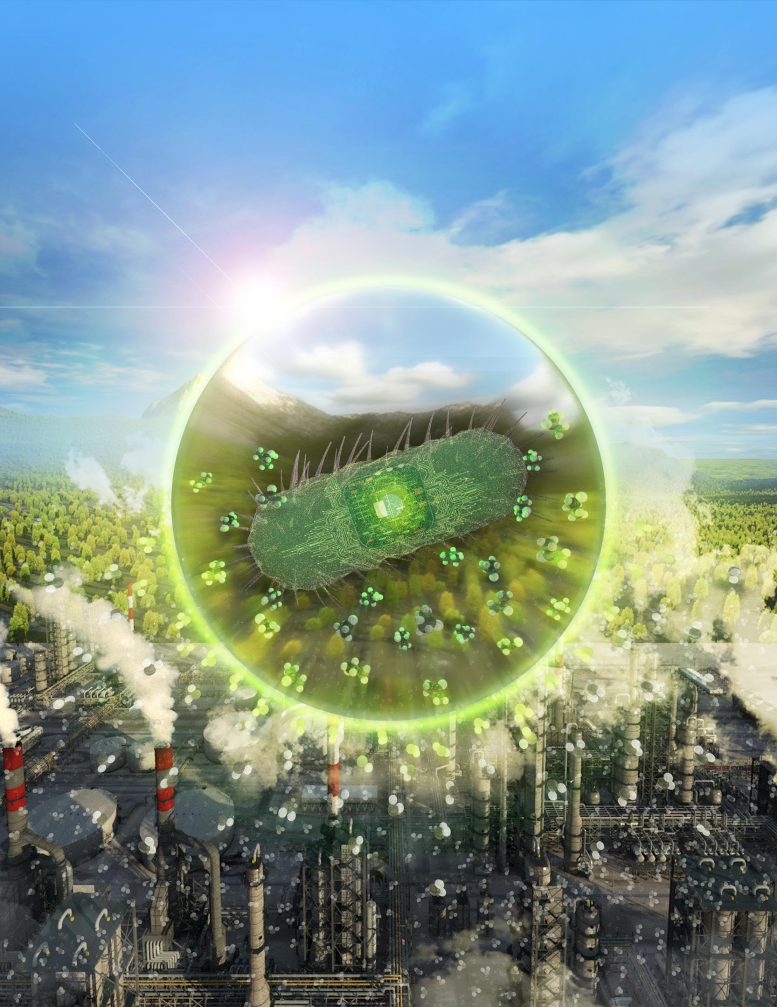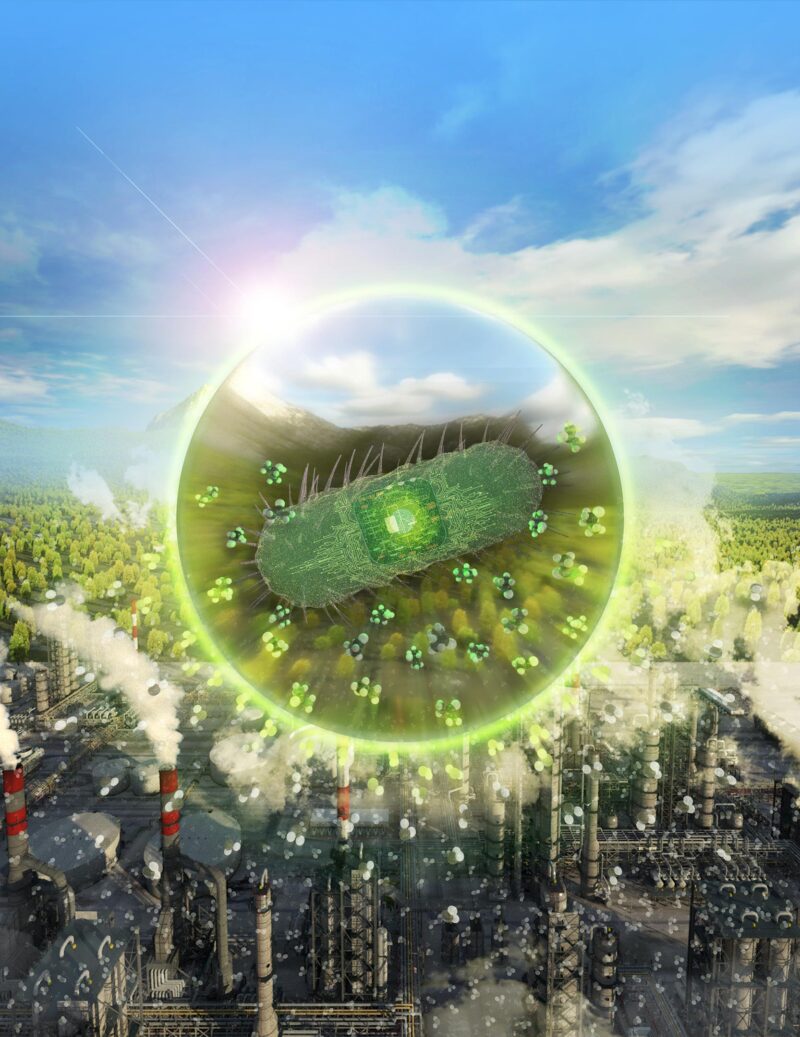
Des biologistes de synthèse ont conçu des bactéries capables de convertir les déchets de carbone en produits chimiques précieux. Cette approche neutre en carbone pourrait contribuer à une économie à émissions nettes nulles. Crédit : Justin Muir
Des bactéries conçues pour recycler les déchets de carbone en produits chimiques de valeur
Les bactéries sont connues pour décomposer le lactose pour faire du yaourt et le sucre pour faire de la bière. Aujourd’hui, des chercheurs dirigés par Northwestern University and LanzaTech have harnessed bacteria to break down waste carbon dioxide (CO2) to make valuable industrial chemicals.
In a new pilot study, the researchers selected, engineered, and optimized a bacteria strain and then successfully demonstrated its ability to convert CO2 into acetone and isopropanol (IPA).
Not only does this new gas fermentation process remove greenhouse gases from the atmosphere, but it also avoids using fossil fuels, which are typically needed to generate acetone and IPA. After performing life-cycle analysis, the team found the carbon-negative platform could reduce greenhouse gas emissions by 160% as compared to conventional processes, if widely adopted.
The study will be published today (February 21, 2022) in the journal Nature Biotechnology.
“The accelerating climate crisis, combined with rapid population growth, pose some of the most urgent challenges to humankind, all linked to the unabated release and accumulation of CO2 across the entire biosphere,” said Northwestern’s Michael Jewett, co-senior author of the study. “By harnessing our capacity to partner with biology to make what is needed, where and when it is needed, on a sustainable and renewable basis, we can begin to take advantage of the available CO2 to transform the bioeconomy.”
Jewett is the Walter P. Murphy Professor of Chemical and Biological Engineering at Northwestern’s McCormick School of Engineering and director of the Center for Synthetic Biology. He co-led the study with Michael Koepke and Ching Leang, both researchers at LanzaTech.
Necessary industrial bulk and platform chemicals, acetone, and IPA are found nearly everywhere, with a combined global market topping $10 billion. Widely used as a disinfectant and antiseptic, IPA is the basis for one of the two World Health Organization-recommended sanitizer formulas, which are highly effective in killing the SARS-CoV-2 virus. And acetone is a solvent for many plastics and synthetic fibers, thinning polyester resin, cleaning tools, and nail polish remover.
While these chemicals are incredibly useful, they are generated from fossil resources, leading to climate-warming CO2 emissions.
To manufacture these chemicals more sustainably, the researchers developed a new gas fermentation process. They started with Clostridium autoethanogenum, an anaerobic bacterium engineered at LanzaTech. Then, the researchers used synthetic biology tools to reprogram the bacterium to ferment CO2 to make acetone and IPA.
“These innovations, led by cell-free strategies that guided both strain engineering and optimization of pathway enzymes, accelerated time to production by more than a year,” Jewett said.
The Northwestern and LanzaTech teams believe the developed strains and fermentation process will translate to industrial scale. The approach also could potentially be applied to create streamlined processes for generating other valuable chemicals.
“This discovery is a major step forward in avoiding a climate catastrophe,” said Jennifer Holmgren, LanzaTech CEO. “Today, most of our commodity chemicals are derived exclusively from new fossil resources such as oil, natural gas or coal. Acetone and IPA are two examples with a combined global market of $10 billion. The acetone and IPA pathways developed will accelerate the development of other new products by closing the carbon cycle for their use in multiple industries.”
Reference: “Carbon-negative, scaled-up production of acetone and isopropanol by gas fermentation” 21 February 2022, Nature Biotechnology.
DOI: 10.1038/s41587-021-01195-w
Jewett is a member of the Chemistry of Life Processes Institute, Simpson Querrey Institute for BioNanotechnology and the Robert H. Lurie Comprehensive Cancer Center of Northwestern University.
The study, “Carbon-negative, scaled-up production of acetone and isopropanol by gas fermentation,” was supported by the U.S. Department of Energy (DOE) Bioenergy Technologies Office (award numbers DE-EE0007566 and CRADA/NFE-16-06364), DOE Office of Science, Biological and Environmental Research Division, Genomic Science Program (award numbers DE-SC0018249 and FWP ERKP903), the David and Lucile Packard Foundation and the Camille Dreyfus Teacher-Scholar Program.



